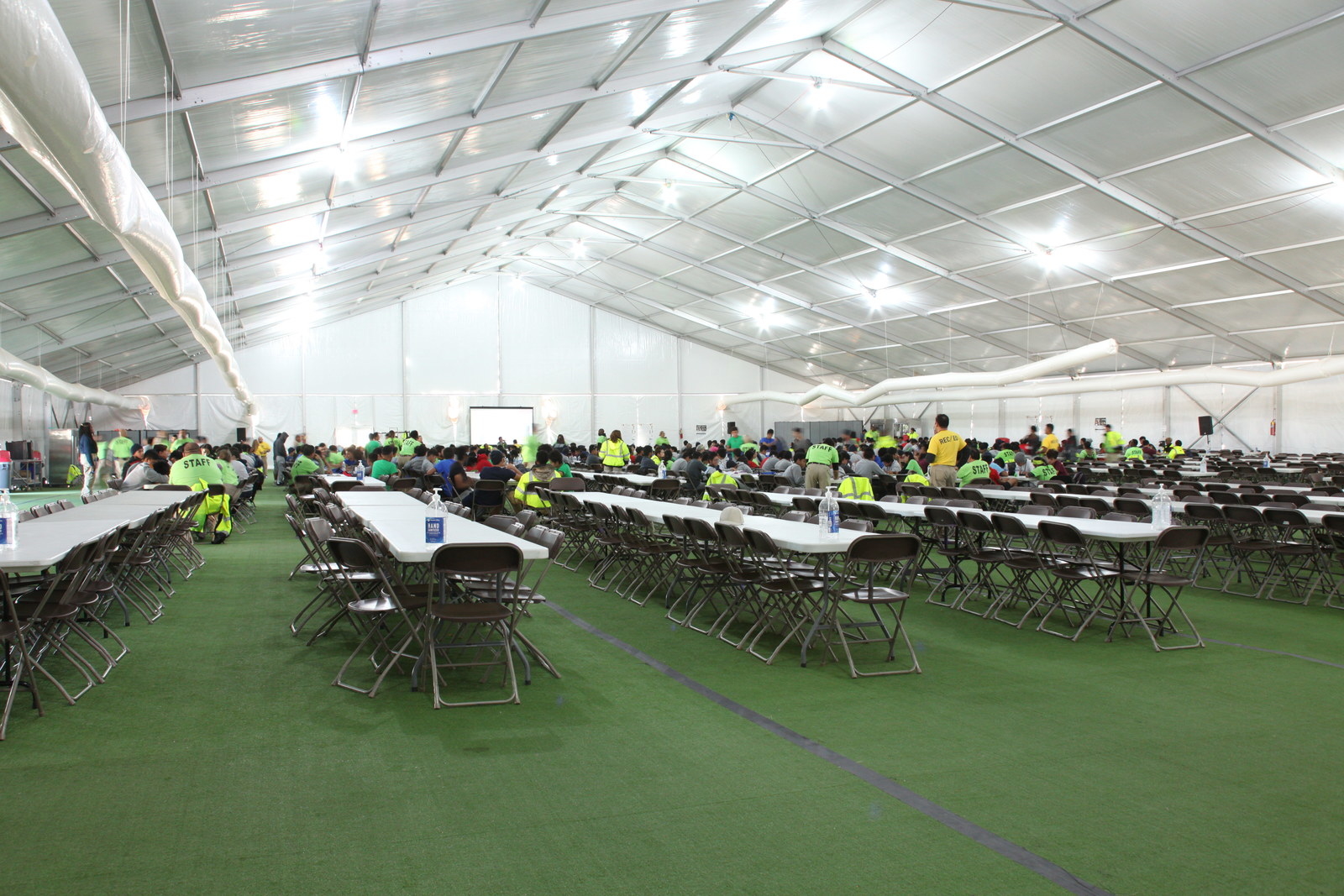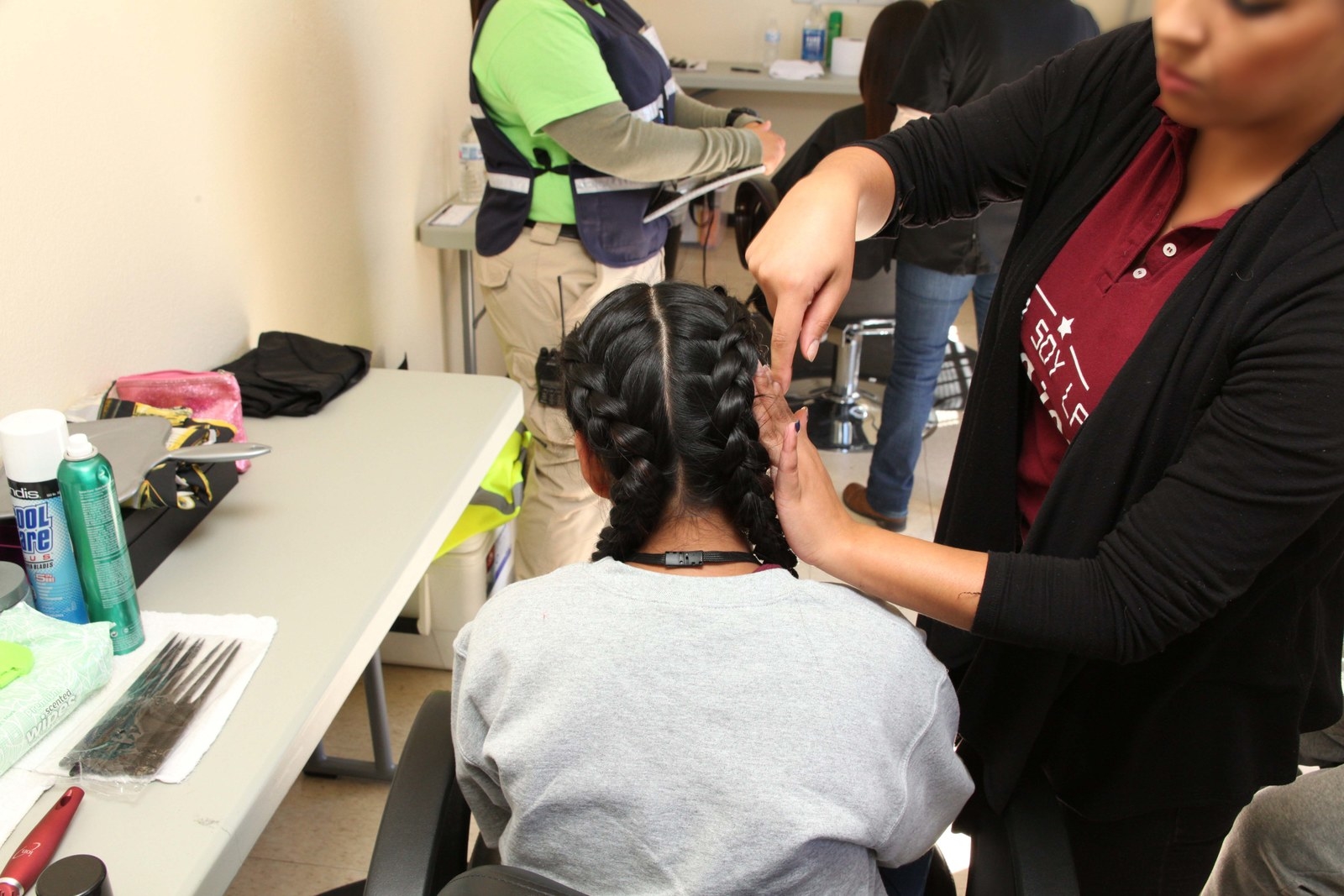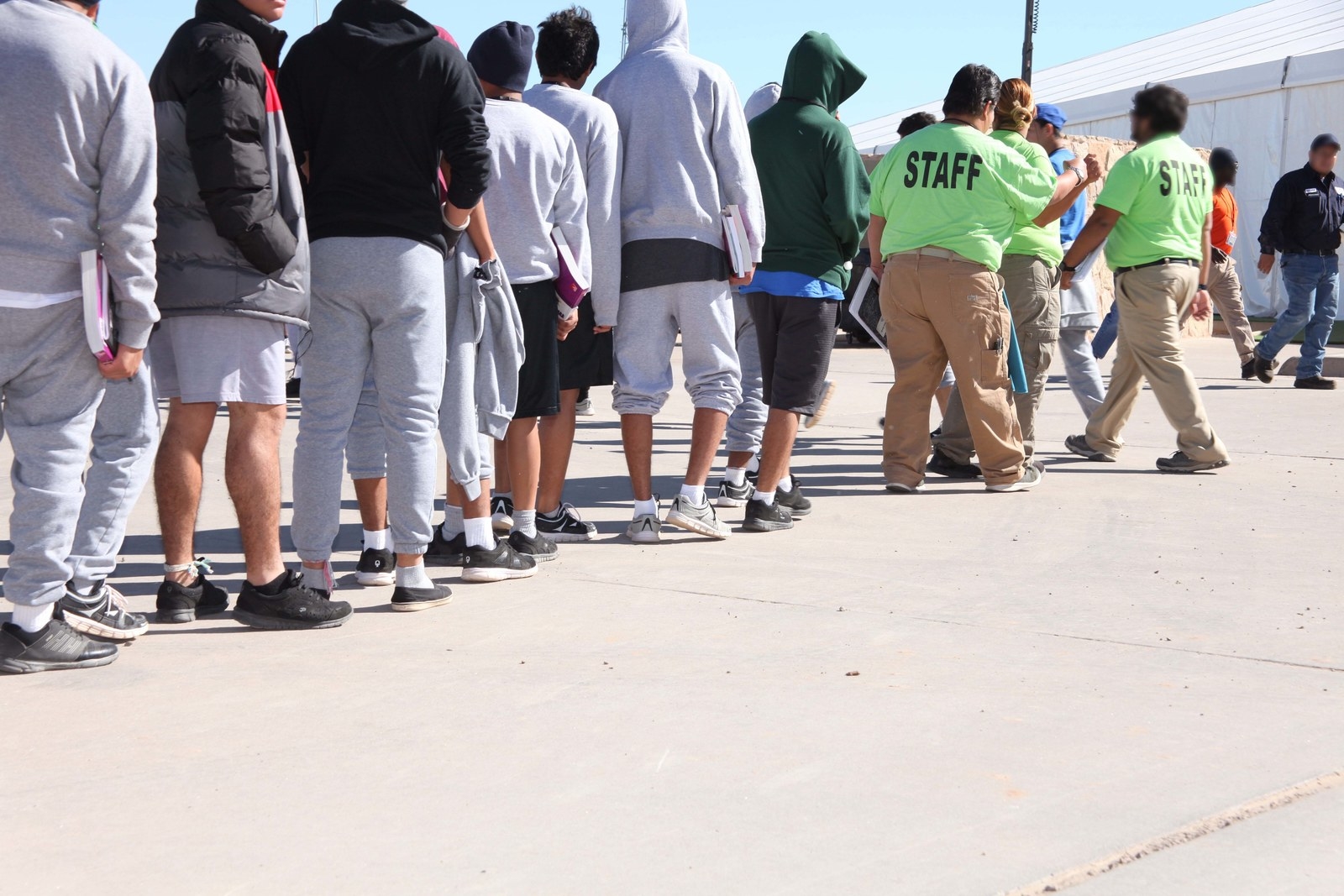A Pro Bono Asylum Lawyer Responds to the Latest Attack from A.G. Sessions
Expecting Asylum-Seekers to Become US Asylum Law Experts: Reflections on My Trip to the Folkston ICE Processing Center
Sophia Genovese, Sept. 10, 2018 – “US asylum law is nuanced, at times contradictory, and ever-changing. As brief background, in order to be granted asylum, applicants must show that they have suffered past persecution or have a well-founded fear of future persecution on account of their race, religion, nationality, membership in a particular social group, or political opinion, and that they are unable or unwilling to return to, or avail themselves of the protection of, their country of origin owing to such persecution. 8 C.F.R. § 1208.13(b)(1) & (2). Attorneys constantly grapple with the ins and outs of asylum law, especially in light of recent, dramatic changes to asylum adjudication.
Even with legal representation, the chances of being granted asylum are slim. In FY 2017, only 45% asylum-seekers who had an attorney were ultimately granted asylum. Imagine, then, an asylum-seeker fleeing persecution, suffering from severe trauma, and arriving in a foreign land where he or she suddenly has to become a legal expert in order to avoid being sent back to certain death. For most, this is nearly impossible, where in FY 2017, only 10% of those unrepresented successfully obtained asylum.
It is important to remember that while asylum-seekers have a right to obtain counsel at their own expense, they are not entitled to government-appointed counsel. INA § 240(b)(4)(A). Access to legal representation is critical for asylum-seekers. However, most asylum-seekers, especially those in detention, go largely unrepresented in their asylum proceedings, where only 15% of all detained immigrants have access to an attorney. For those detained in remote areas, that percentage is even lower.
Given this inequity, I felt compelled to travel to a remote detention facility in Folkston, GA and provide pro bono legal assistance to detained asylum-seekers in their bond and parole proceedings. I travelled along with former supervisors turned mentors, Jessica Greenberg and Deirdre Stradone, Staff Attorneys at African Services Committee(ASC)/Immigrant Community Law Center (ICLC), along with Lucia della Paolera, a volunteer interpreter. Our program was organized and led by the Southern Poverty Law Center’s Southeast Immigrant Freedom Initiative (SIFI). SIFI currently only represents detained asylum-seekers in their bond and parole proceedings in order to assist as many folks as possible in obtaining release. Their rationale is that since bond and parole representation take up substantially less time than asylum representation, that they can have a far greater impact in successfully obtaining release for several hundred asylum-seekers, who can hopefully thereafter obtain counsel to represent them in their asylum proceedings.
Folkston is extremely remote. It is about 50 miles northwest of Jacksonville, FL, and nearly 300 miles from Atlanta, GA, where the cases from the Folkston ICE Processing Center are heard. Instead of transporting detained asylum-seekers and migrants to their hearings at the Atlanta Immigration Court, Immigration Judges (IJs) appear via teleconference. These proceedings lack any semblance to due process. Rather, through assembly-line adjudication, IJs hear several dozens of cases within the span of a few hours. On court days, I witnessed about twenty men get shuffled into a small conference room to speak with the IJ in front of a small camera. The IJ only spends a few minutes on each case, and then the next twenty men get shuffled into the same room. While IJs may spend a bit more time with detainees during their bond or merits hearings, the time spent is often inadequate, frequently leading to unjust results.
Even with the tireless efforts of the Staff Attorneys and volunteers at SIFI, there are simply too few attorneys to help every detainee at the Folkston ICE Processing Center, which houses almost 900 immigrants at any given time, leaving hundreds stranded to navigate the confusing waters of immigration court alone.
During initial screenings, I encountered numerous individuals who filled out their asylum applications on their own. These folks try their best using the internet in the library to translate the application into their native language, translate their answers into English, and then hand in their I-589s to the IJ. But as any practitioner will tell you, so much more goes into an asylum application than the Form I-589. While these asylum seekers are smart and resourceful, it is nearly impossible for one to successfully pursue one’s own asylum claim. To make matters worse, if these asylum-seekers do not obtain release from detention ahead of their merits hearing where an IJ will adjudicate their asylum claim, they will be left to argue their claims in the Atlanta Immigration Court, where 95%-98% of all asylum claims are denied. For those detained and/or unrepresented, that number is nearly 100%.
Despite the Attorney General’s most recent comments that lawyers are not following the letter of the law when advocating on behalf of asylum-seekers, it is clear that it is the IJs, [tasked with fairly applying the law, and DHS officials, tasked with enforcing the law,] who are the ones seeking to circumvent the Immigration and Nationality Act (INA). Throughout the Trump era, immigration attorneys have faithfully upheld asylum law and have had to hold the government accountable in its failure to apply the law fairly. Good lawyers, using all of their talents and skill, work every day to vindicate the rights of their clients pursuant to the INA, contrary to Sessions’ assertions.
But more importantly, asylum-seekers have suffered from serious human rights abuses and merit protection under our laws. Their cases are not denied because they are not bona fide. Their cases are not denied because they do not qualify as refugees under the INA. Indeed, most of these asylum-seekers were found to possess a credible fear of return upon their initial apprehension. Through a combination of lack of access to counsel, unfair and uneven adjudication by IJs, and impermissible interference by the Attorney General, credible and bona fide cases are frequently denied.
We’ve previously blogged about the due process concerns in immigration courts under Sessions’ tenure. Instead, I want to highlight the stories of some of the asylum-seekers I met in Folkston. If these individuals do not obtain counsel for the bond or parole proceedings, and/or if they are denied release, they will be forced to adjudicate their claims in the Atlanta Immigration Court where they will almost certainly be ordered removed. It is important that we understand who it is that we’re actually deporting. Through sharing their stories, I want to demonstrate to others just how unfair our asylum system is. Asylum was meant to protect these people. Instead, we treat them as criminals by detaining them, do not provide them with adequate access to legal representation, and summarily remove them from the United States. Below are their stories:
Twenty-Five Year Old From Honduras Who Had Been Sexually Assaulted on Account of His Sexual Orientation
At the end of my first day in Folkston, I was asked to inform an individual, Mr. J-, that SIFI would be representing him in his bond proceedings. He’s been in detention since March 2018 and cried when I told him that we were going to try and get him out on bond.
Mr. J- looks like he’s about sixteen, and maybe weighs about 100 pounds. Back home in Honduras, he was frequently ridiculed because of his sexual orientation. Because he is rather small, this ridicule often turned into physical assault by other members of his community, including the police. One day when Mr. J- was returning from the store, he was stopped by five men from his neighborhood who started berating him on account of his sexual orientation. These men proceeded to sexually assault him, one by one, until he passed out. These men warned Mr. J- not to go to the police, or else they would find him and kill him. Mr. J- knew that the police would not help him even if he did report the incident. These men later tracked down Mr. J-’s cellphone number, and continued to harass and threaten him. Fearing for his life, Mr. J- fled to the United States.
Mr. J-’s asylum claim is textbook and ought to be readily granted. However, given Sessions’ recent unilateral change in asylum law based on private acts of violence, Mr. J- will have to fight an uphill battle to ultimately prevail. See Matter of A-B-, 27 I&N Dec. 316 (A.G. 2018). If released on bond, Mr. J- plans to move in with his uncle, a US citizen, who resides in Florida. Mr. J-’s case will then be transferred to the immigration court in Miami. Although the Immigration Court in Miami similarly has high denial rates, where nearly 90% of all asylum claims are ultimately denied, Mr. J- will at least have a better chance of prevailing there than he would in Atlanta.
Indigenous Mayan from Guatemala Who Was Targeted on Account of His Success as a Businessman
During my second day, I met with an indigenous Mayan from Guatemala, Mr. S-. He holds a Master’s degree in Education, owned a restaurant back home, and was the minister at his local church. He had previously worked in agriculture pursuant to an H-2B visa in Iowa, and then returned to Guatemala when the visa expired to open his business.
He fled Guatemala earlier this year on account of his membership in a particular social group. One night after closing his restaurant, he was thrown off his motorcycle by several men who believes were part of a local gang. They beat him and threatened to kill him and his family if he did not give them a large sum of money. They specifically targeted Mr. S- because he was a successful businessman. They warned him not to go to the police or else they would find out and kill him. The client knew that the police would not protect him from this harm on account of his ethnic background as an indigenous Mayan. The day of the extortionists’ deadline to pay, Mr. S- didn’t have the money to pay them off, and was forced to flee or face a certain death.
Mr. S- has been in immigration detention since March. The day I met with him at the end of August was the first time he had been able to speak to an attorney.
Mr. S-’s prospects for success are uncertain. Even prior to the recent decision in Matter of A-B-, asylum claims based on the particular social group of “wealthy businessmen” were seldom granted. See, e.g., Lopez v. Sessions, 859 F.3d 464 (7th Cir. 2017); Dominguez-Pulido v. Lynch, 821 F.3d 837, 845 (7th Cir. 2016) (“wealth, standing alone, is not an immutable characteristic of a cognizable social group”); but see, Tapiero de Orejuela v. Gonzales, 423 F.3d 666 (7th Cir. 2005) (confirming that although wealth standing alone is not an immutable characteristic, the Respondent’s combined attributes of wealth, education status, and cattle rancher, satisfied the particular social group requirements). However, if Mr. S- can show that he was also targeted on account of his indigenous Mayan ancestry, he can perhaps also raise an asylum claim based on his ethnicity. The combination of his particular social group and ethnicity may be enough to entitle him to relief. See, e.g., Ordonez-Quino v. Holder, 760 F.3d 80, 90 (1st Cir. 2014) (Respondent demonstrated that his “Mayan Quiché identity was ‘at least one central reason’ why he” was persecuted).
As business immigration attorneys may also point out, if Mr. S- can somehow locate an employer in the US to sponsor him, he may be eligible for employment-based relief based on his Master’s degree, prior experience working in agriculture, and/or his business acumen on account of his successful restaurant management. Especially if Mr. S- is not released on bond and forced to adjudicate his claims in the Atlanta Immigration Court where asylum denial rates are high, his future attorney may also want to explore these unorthodox strategies.
Indigenous Mam-Speaking Guatemalan Persecuted on Account of His Race, Religion, and Particular Social Group
My third day, I met with Mr. G-, an indigenous Mam from Guatemala. Mr. G- is an incredibly devout Evangelical Christian and one of the purest souls I have ever met. He has resisted recruitment by rival gangs in his town and has been severely beaten because of his resistance. He says his belief in God and being a good person is why he has resisted recruitment. He did not want to be responsible for others’ suffering. The local gangs constantly assaulted Mr. G- due to his Mam heritage, his religion, and his resistance of them. He fled to the US to escape this persecution.
Mr. G- only speaks Mam, an ancient Mayan dialect. He does not speak Spanish. Because of this, he was unable to communicate with immigration officials about his credible fear of return to his country upon his initial arrival in November 2017. Fortunately, the USCIS asylum officer deferred Mr. G-’s credible fear interview until they could locate a Mam translator. However, one was never located, and he has been in immigration detention ever since.
August 29, 2018, nine months into his detention, was the first time he was able to speak to an attorney through an interpreter that spoke his language. Mr. G- was so out of the loop with what was going on, that he did not even know what the word “asylum” meant. For nine months, Mr. G- had to wait to find out what was going on and why he was in detention. My colleague, Jessica, and I, spoke with him for almost three hours. We could not provide him with satisfactory answers about whether SIFI would be able to take his case, and when or if he would be let out of detention. Given recent changes in the law, we couldn’t tell him if his asylum claim would ultimately prevail.
Mr. G- firmly stated that he will be killed if he was forced to go back to Guatemala. He said that if his asylum claim is denied, he will have to put his faith in God to protect him from what is a certain death. He said God is all he has.
Even without answers, this client thanked us until he was blue in the face. He said he did not have any money to pay us but wanted us to know how grateful he was for our help and that he would pray for us. Despite the fact that his life was hanging in the balance, he was more concerned about our time and expense helping him. He went on and on for several minutes about his gratitude. It was difficult for us to hold back tears.
Mr. G- is the reason asylum exists, but under our current framework, he will almost certainly be deported, especially if he cannot locate an attorney. Mr. G- has an arguable claim under Ordonez-Quino v. Holder, on account of his Mam heritage, and an arguable claim on account of his Evangelical Christianity, given that Mr. G-’s persecution was compounded by his visible Mam ethnicity and vocal Evangelical beliefs. His resistance to gang participation will be difficult to overcome, though, as the case law on the subject is primarily negative. See, e.g., Bueso-Avila v. Holder, 663 F.3d 934 (7th Cir. 2011) (finding insufficient evidence that MS-13 targeted Petitioner on account of his Christian beliefs, finding instead that the evidence supported the conclusion that the threats were based on his refusal to join the gang, which is not a protected ground). Mr. G-’s low prospects of success are particularly heart-wrenching. When we as a country fail to protect those seeking refuge from persecution, especially those fleeing religious persecution, we destroy the very ideals upon which this country was founded.
Twenty-Year Old Political Activist From Honduras, Assaulted by Military Police on Account of His Political Opinion
I also assisted in the drafting of a bond motion for a 20 year-old political activist from Honduras, Mr. O-, who had been severely beaten by the military police on account of his political opinion and activism.
Mr. O- was a prominent and vocal member of an opposition political group in Honduras. During the November 2017 Honduran presidential elections, Mr. O- assisted members of his community to travel to the polling stations. When election officials closed the polls too early, Mr. O- reached out to military police patrolling the area to demand that they re-open the polling stations so Hondurans could rightfully cast their votes. The military police became angry with Mr. O-’s insistence and began to beat him by stomping and kicking him, leaving him severely wounded. Mr. O- reported the incident to the police, but was told there was nothing they could do.
A few weeks later, Mr. O- was specifically targeted again by the military police when he was on his way home from a political meeting. The police pulled him from his car and began to beat him, accusing him of being a rioter. He was told to leave the country or else he would be killed. He was also warned that if he went to the national police, that he would be killed. Fearing for his life, Mr. O- fled to the US in April 2018 and has been in detention ever since.
SIFI was able to take on his bond case in August, and by the end of my trip, the SIFI team had submitted his request for bond. Since Mr. O-’s asylum claim is particularly strong, and because he has family in the US, it is highly likely that his bond will be granted. From there, we can only hope that he encounters an IJ that appropriately follows the law and will grant him asylum.”
(The author thanks Jessica Greenberg and Deirdre Stradone for their constant mentorship as well as providing the author the opportunity to go to Folkston. The author also thanks Lucia della Paolera for her advocacy, passion, and critical interpretation assistance. Finally, the author expresses the utmost gratitude to the team at SIFI, who work day in and day out to provide excellent representation to the detained migrants and asylum-seekers detained at Folkston ICE Processing Center.)
Photos from my trip to Folkston, GA:

The Folkston ICE Processing Center.
Downtown Folkston, GA.

Volunteers from Left to Right: Sophia Genovese (author), Deirdre Stradone (Staff Attorney at African Services Committee), Jessica Greenberg (Staff Attorney at ASC/ICLC), and Lucia della Paolera (volunteer interpreter).
As Sophia cogently points out, since the beginning of this Administration it has been private lawyers, most serving pro bono or “low bono,” who have been courageously fighting to uphold our Constitution and the rule of law from the cowardly scofflaw White Nationalist attacks by Trump, Sessions, Miller, Nielsen, and the rest of the outlaws. In a significant number of cases, the Article III Federal Courts have agreed and held the scofflaws at least legally (if not yet personally) accountable.
Like any bully, Sessions resents having to follow the law and having higher authorities tell him what to do. He has repeatedly made contemptuous, disingenuous legal arguments and presented factual misrepresentations in support of his lawless behavior and only grudgingly complied with court orders. He has disrespectfully and condescendingly lectured the courts about his authority and their limited role in assuring that the Constitution and the law are upheld. That’s why he loves lording it over the US Immigration Courts where he is simultaneously legislator, investigator, prosecutor, judge, jury, appellate court, and executioner in violation of common sense and all rules of legal ethics.
But, Sessions will be long gone before most of you new US Immigration Judges will be. He and his “go along to get along enablers” certainly will be condemned by history as the “21st Century Jim Crows.” Is that how you want to be remembered — as part of a White Nationalist movement that essentially is committed to intentional cruelty, undermining our Constitution, and disrespecting the legal and human rights and monumental contributions to our country of people of color and other vulnerable groups?
Or will you, as Sessions urges, treat migrants as “fish in a barrel” or “easy numbers,” unfairly denying their claims for refuge without ever giving them a real chance. Will you prejudge their claims and make false imputations of fraud, with no evidence, as he has? Will you give fair hearings and the granting of relief under our laws the same urgency that Sessions touts for churning out more removal orders. �Will you resist Sessions’s disingenuous attempt to shift the blame for the existing mess in the Immigration Courts from himself, his predecessors, the DHS, and Congress, where it belongs, to the individuals and their attorneys coming before you in search of justice (and also, of course, to you for not working hard enough to deny more continuances, cut more corners, and churn out more rote removal orders)?
Your choice. Choose wisely. Good luck. Do great things!





























